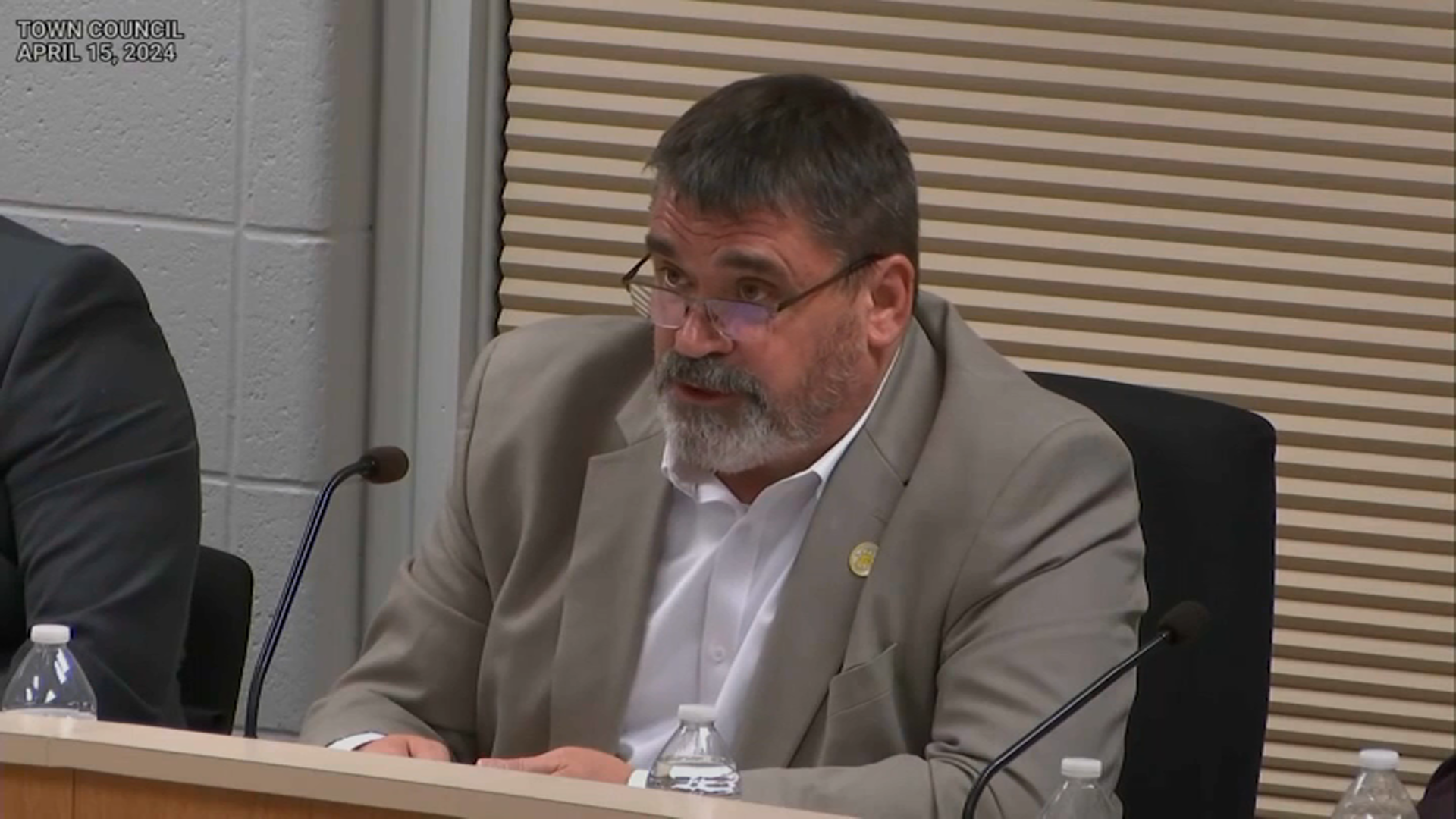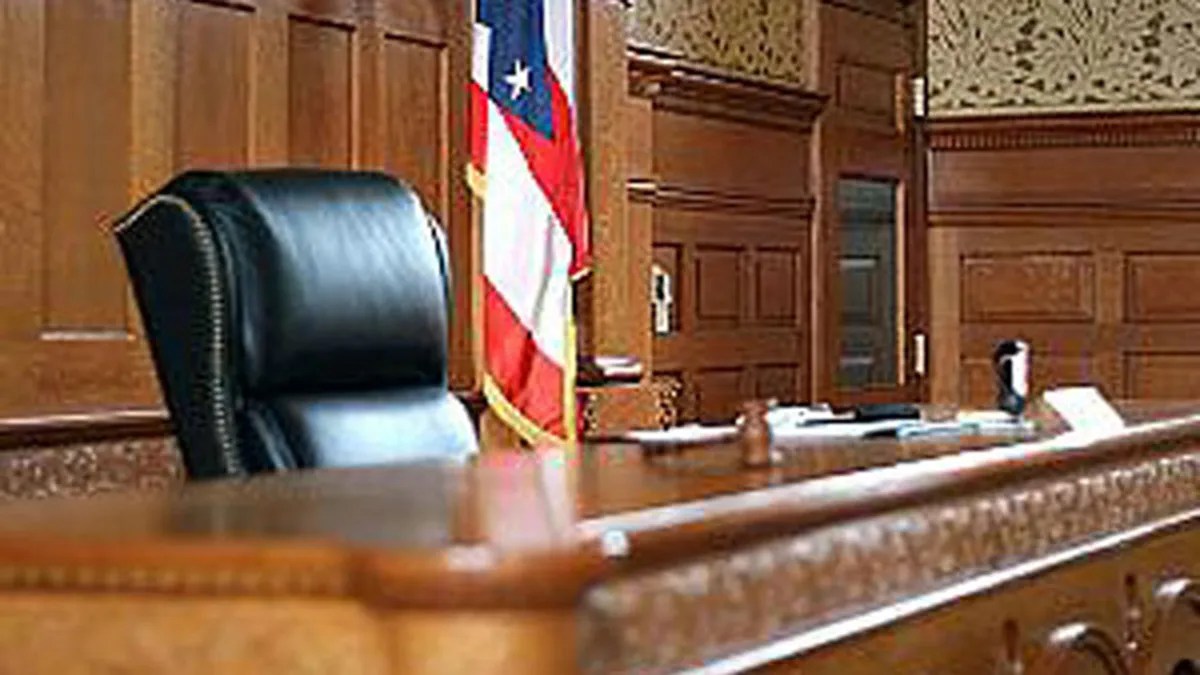Republican mayoral candidate Joseph Lhota, running out of time to avoid a rout by Democrat Bill de Blasio, went on the offensive in the second televised debate of the mayoral campaign Tuesday, warning that his opponent would allow the city to slip into lawlessness and undo the accomplishments of the past two GOP mayors.
De Blasio, meanwhile, accused Lhota of "fear mongering" and "race baiting" and of catering to his party's right wing.
The result was a verbal duel in which each candidate displayed his attack-dog chops, simultaneously disparaging his opponent and accusing him of distortion.
While the two men wrangled on issues ranging from crime to taxes to education reform, their contrasting physical postures were just as revealing.
De Blasio, a former city councilman and the current public advocate who leads Lhota by more than 40 points in polls, maintained a confident grin for most of the exchanges. That smile sometimes made him seem smug.
Lhota, a former MTA chairman and deputy mayor under Rudy Giuliani, looked more stern and focused, rarely smiling and often letting his anger show.
Early on, Lhota was asked to explain a recent television ad that used unnerving 1980s-era images to warn that crime would rise under de Blasio.
Local
Lhota noted that de Blasio had worked for former Mayor David Dinkins, when murders peaked at over 2,000 and the Crown Heights race riots rattled the city. De Blasio's call for ending police stop-and-frisks and the creation of an inspector general to monitor the NYPD, he said, would drag the city backwards.
"Everything Bill de Blasio has talked about in public safety I believe is reckless," said Lhota, who wants to continue stop-and-frisks.
De Blasio said he believed in "a strong NYPD" but an inspector general would provide "a smart form of checks and balances" between public safety and civil liberties.
"Mr. Lhota should be ashamed of an ad that tries to divide us," de Blasio said.
"There's nothing divisive about that ad whatsoever," Lhota replied. He then accused de Blasio of wanting to do nothing more than "attack and attack and attack."
Lhota’s aggression was a dramatic change from the more passive performance of their first debate, which de Blasio was widely seen as having dominated.
Lhota has struggled to portray himself as the more experienced candidate. At the same time, he has yet to undermine de Blasio’s populist message, which focuses on the divide between New York’s wealthy and poor.
De Blasio's signature campaign promise is to fund universal pre-kindergarten by raising taxes on New Yorkers who earn more than $500,000 a year. The move would require support from state lawmakers and Gov. Andrew Cuomo, both of whom face re-election next year. Cuomo has said he doesn't want to raise taxes.
Asked how he'd pull it off, De Blasio said that if he were to win with a clear majority of votes, the popular support would provide "wind in our sails" in Albany.
Lhota said the response showed that de Blasio "doesn't have a Plan B." He warned that the tax would inevitably bleed into lower tax brackets.
"If you're in the middle class, hold onto your wallet, because no one has ever been able to just tax the rich," Lhota said.
De Blasio countered that Lhota hadn't offered his own plan, and accused him of proposing tax cuts that would "blow a hole" in the city budget while helping rich people get richer.
Things got testy again on the subject of charter schools. Lhota said the city needed more of them, and argued that de Blasio, who has expressed skepticism of charters, was "threatening to annihilate them."
De Blasio accused Lhota of "fear mongering."
The candidates did find a bit of common ground. They agreed, for example, with Mayor Bloomberg's plan to build a "Seaport City" along the East River in lower Manhattan.
"We have our Kumbaya moment," de Blasio joked.
But that consensus quickly disappeared when Lhota was asked to explain two of his most infamous public gaffes: when he was quoted as calling Bloomberg "an idiot" during the response to Hurricane Sandy, and when he likened police officers from the Port Authority of New York and New Jersey to "mall cops."
Rather than hastily dispensing with the question, Lhota took precious minutes explaining himself in detail. He said he'd apologized in both cases and said he wouldn't often be caught saying such things as mayor.
"The point is, I've always called things the way I see it," Lhota said.
De Blasio pounced, and turned the conversation back to the evocative television ad. "It's race-baiting and fear mongering and you know it," de Blasio said.
"Don't tell me I throw out the race card, because there is nothing racial in there," Lhota said.
"The bottom line is his ad depicts images of riots, of dead bodies in the streets," de Blasio said.
"What's racial in there?" Lhota said.
De Blasio then said Lhota wanted to return to the policies of his old boss, Giuliani.
"I'm sick and tired of you impugning the integrity of Mr. Giuliani," Lhota said, looking angry.
"I'd be happy to debate Mr. Giuliani," de Blasio said, smiling.
The candidates talked over each other until the moderator, WCBS anchorman Maurice DuBois, cut in.
"Only 10 minutes ago we had a Kumbaya moment," DuBois said.
"He had a Kumbaya moment," Lhota interjected.
Near the end of the hour-long debate, each candidate was told to ask the other a question. Lhota brought up de Blasio's role as a Dinkins aide during in the 1991 Crown Heights riots. A recent Daily News article suggested that de Blasio didn't properly communicate to bosses how dire the situation was before it escalated beyond control of the police.
"You took calls on Crown Heights and sat on them," Lhota said.
"Here we go again, Mr. Lhota, misrepresenting the facts," de Blasio said. But he didn't clarify his actions.
De Blasio's framed his question for Lhota as an accusation: that he sought Tea Party support on Staten Island during the Republican primary.
The charge was a familiar one, used by De Blasio in a television ad last week. Lhota had a prepared response.
"You talk about tea so much you remind me of the Mad Hatter,' Lhota said. He said he sought the support "of all New Yorkers."
De Blasio continued to describe Lhota as a right-winger until Lhota, clearly frustrated, complained, "How many questions does he get to ask?"
"We'll move on," DuBois conceded.
Lhota finished as he started, with a dig at de Blasio.
"We are one mayor away from unsafe streets, unsafe schools and unsafe fiscal policy," Lhota said in his closing statement.
De Blasio didn't answer the barb directly. Instead, he repeated his "tale of two cities" mantra and promised "a new progressive direction" for the city.
The candidates will meet for their third and final televised debate next Tuesday, to be broadcast and streamed on NBC 4 New York.



